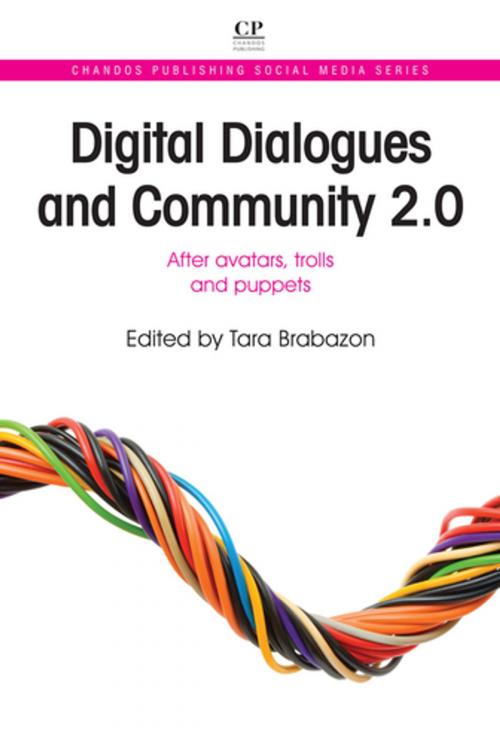Digital Dialogues and Community 2.0
After Avatars, Trolls and Puppets
Nonfiction, Reference & Language, Language Arts, Library & Information Services, Computers, Internet, Reference| Author: | ISBN: | 9781780633022 | |
| Publisher: | Elsevier Science | Publication: | April 25, 2012 |
| Imprint: | Chandos Publishing | Language: | English |
| Author: | |
| ISBN: | 9781780633022 |
| Publisher: | Elsevier Science |
| Publication: | April 25, 2012 |
| Imprint: | Chandos Publishing |
| Language: | English |
Digital Dialogue and Community 2.0: After avatars, trolls and puppets explores the communities that use digital platforms, portals, and applications from daily life to build relationships beyond geographical locality and family links. The book provides detailed analyses of how technology realigns the boundaries between connection, consciousness and community. This book reveals that alongside every engaged, nurturing and supportive group are those who are excluded, marginalised, ridiculed, or forgotten. It explores the argument that community is not an inevitable result of communication. Following an introduction from the Editor, the book is then divided into four sections exploring communities and resistance, structures of sharing, professional communication and fandom and consumption. Digital Dialogues and Community 2.0 combines ethnographic methods and professional expertise to open new spaces for thinking about language, identity, and social connections.
- Provides innovative interdisciplinary research, incorporating Library and Information Management, Internet Studies, Cultural Studies, Media Studies, Disability Studies and Community Management
- Offers a balanced approach between the ‘bottom up’ and ‘top down’ development of online communities
- Demonstrates the consequences on the configuration of a community when consumers become producers and their lives and experiences are commodified
Digital Dialogue and Community 2.0: After avatars, trolls and puppets explores the communities that use digital platforms, portals, and applications from daily life to build relationships beyond geographical locality and family links. The book provides detailed analyses of how technology realigns the boundaries between connection, consciousness and community. This book reveals that alongside every engaged, nurturing and supportive group are those who are excluded, marginalised, ridiculed, or forgotten. It explores the argument that community is not an inevitable result of communication. Following an introduction from the Editor, the book is then divided into four sections exploring communities and resistance, structures of sharing, professional communication and fandom and consumption. Digital Dialogues and Community 2.0 combines ethnographic methods and professional expertise to open new spaces for thinking about language, identity, and social connections.
- Provides innovative interdisciplinary research, incorporating Library and Information Management, Internet Studies, Cultural Studies, Media Studies, Disability Studies and Community Management
- Offers a balanced approach between the ‘bottom up’ and ‘top down’ development of online communities
- Demonstrates the consequences on the configuration of a community when consumers become producers and their lives and experiences are commodified















